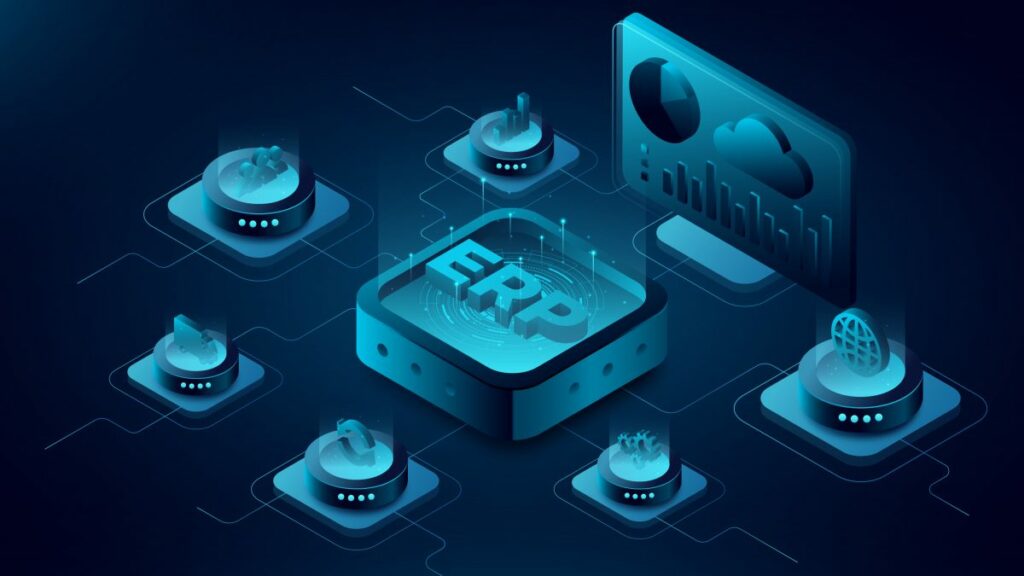An enterprise resource planning (ERP) system plays a crucial role in the day-to-day operations of an organization. This system provides businesses of all sizes with a single platform from which they can manage and unify information from different departments. This includes everything from manufacturing, finances, human resources, and reporting, among others. Aside from this, an ERP system can also offer practical insights into how a company’s resources were utilized, thus enabling the business to address inefficiencies in its operations.

Due to its integral role in managing the data and operations of modern businesses, the enterprise resource planning system has also become a primary target for cybercriminals that aim to utilize their target company’s data for their own means and disrupt its processes and operations. It’s estimated that every 11 seconds, at least 1 organization gets attacked by cybercriminals–an event that can lead to an average of 7.3 days of downtime.
What’s more, companies that fall victim to these practices risk incurring substantial financial losses and reputational damage. These devastating attacks are expected to become more common in the near future as the world continues to embrace digital technologies.
Finding ERP Providers That Address Common Security Issues
Given the importance of the ERP system and the threats that are directed at it, how can a company ensure the safety and security of the said platform? First and foremost, security should be a priority when choosing an ERP system. Businesses must select solutions that can protect their data and address future vulnerabilities that cybercriminals might exploit in order to access sensitive data and financial information. In particular, businesses should look for ERP solutions that address the following weaknesses:
- Complexity and Interconnectedness. An ERP system is designed to manage complex tasks and data from a single point. The system handles multiple authorization objects at the same time and serves as a vital point of connection to and from different departments within an organization. This complexity can be used by malicious actors to breach security. After which, they can make use of the interconnected system to manipulate specific processes or access sensitive information. Modern ERP solutions providers can address inefficient data flows and reduce the complexity of the platform that they offer companies. By streamlining the way their solution handles processes, ERP system providers can limit the possible access points that outsiders can use to breach the program.
- Dated Systems. The relationship between an ERP system provider and a business does not simply end once the company procures the software they need. ERP system providers should continue to offer their customers updates to ensure that their systems remain protected from the latest modes of cybercriminal attacks. Businesses that use ERP systems, on the other hand, must also ensure that their programs are updated regularly so that they can benefit from the latest security patches that their providers are sharing with users.
- Lack of Security Specialists. Many businesses put off investing in ERP security until it’s too late and their system has already been breached. Failing to invest in ERP security makes a company more vulnerable to cyberattacks. At the same time, without an ERP security specialist on board, a company can remain ignorant of internal and external threats and emerging trends in cybercriminal activities. Choosing an ERP solutions provider that offers strong security support can help a company address this particular issue.
- Authentication Issues. Lax practices in securing authentication credentials are another common entry point for many cybercriminals that aim to breach ERP systems. While it’s designed to provide a unified platform for businesses, an ERP system should still have measures in place to prevent exploitation and unauthorized access within an organization. There should be strong measures to protect access privileges within the ERP system itself and among the people that use the said platform.
What Can Businesses Do to Protect Themselves?
In addition to choosing ERP systems that offer solutions to these common security issues, it’s also important for businesses to do their part in protecting their data from unauthorized access and malicious entities.
Keeping everyone updated on the latest schemes that cybercriminals use to infiltrate ERP systems is an effective way of preventing breaches and unauthorized access. If the members of an organization are familiar with phishing techniques, for example, then they can recognize if they are on the receiving end of one and can act accordingly to limit the damage that such an attack can cause. If they’re well aware that they’re being asked for information that they were repeatedly reminded not to share, the employees can alert the rest of the team of the efforts to infiltrate the company.
Cybersecurity is a growing problem for businesses in the digital age, and it’s a concern that should be addressed when choosing the right ERP system. By partnering with an ERP provider that takes this issue seriously, businesses can help make their systems less vulnerable to cyberattacks and information breaches.